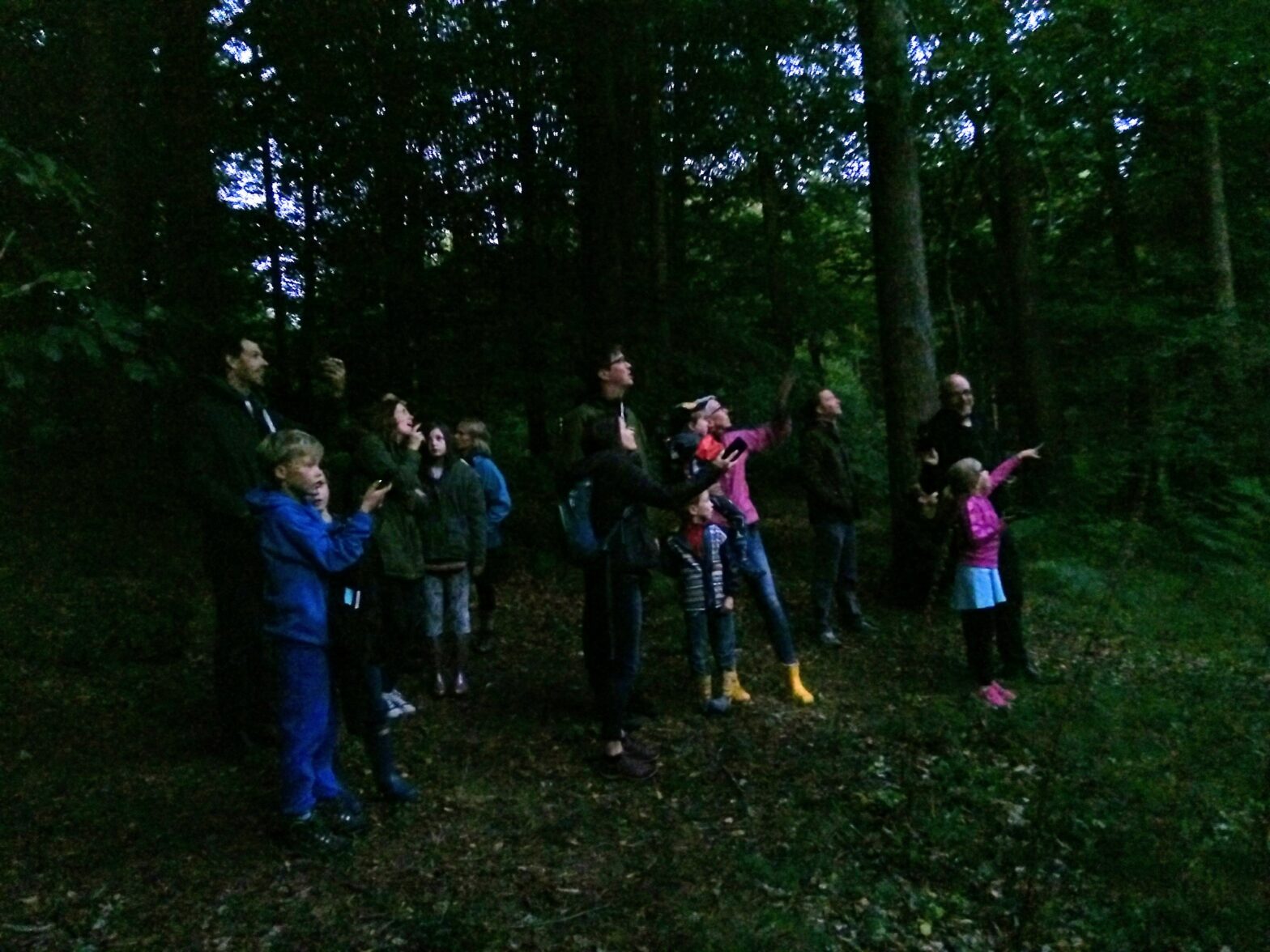On 29th July 2021, we celebrated the start of the school summer holidays with a night time safari looking for some of our nocturnal wildlife – bats and glow worms. We had a great time and were fully booked, with 30 people attending. The income from your ticket sales supports our charitable work, so thank you to everyone who came. Thanks also to volunteers Ella and Yasmin for supporting me in the smooth-running of the event. We had lots of positive comments, people really enjoyed being out in the wood at night. We welcomed lots of new people to the wood, and welcomed back about half the group who had been before.
We started the evening with a talk in the Heartwood, learning about bats and glow worms (you can watch a pre-recording of the talk on YouTube below or by clicking here). Then we set off exploring the wood to look for bats – and were treated with some great bat activity! It was a slow start, we had to wait around 10 minutes near the Sweet Chestnut Copse to see and hear our first bat, but from then on they didn’t stop! Once we tore ourselves away from that spot and made our way to the pond, we saw first one, then two bats circling and diving, catching their insect prey over the water. We continued our walk along the main rides, trying to look both up for bats and down for glow worms at the same time.
Unfortunately we didn’t see any glow worms on the night, despite some false alarms (flowers which looked like they were glowing faintly!). It was not a dark night due to cloud cover, which makes it harder to spot the lights in the dark. Though we have seen them in August before, this summer of strange weather may mean they’ve already mated and died (their normal life cycle!). From The UK Glow Worm Survey ” The (glowing) adult females live for only a couple of weeks, as they cannot feed and they just live to mate, then die. Each year you are seeing the ones which were hatched out from eggs two years previously.” We did see some at the BioBlitz back at the end of May, so don’t worry, they are still here! Come back next year if you’d like another go at seeing them 🙂
Charley Miller, Conservation and Education Coordinator

